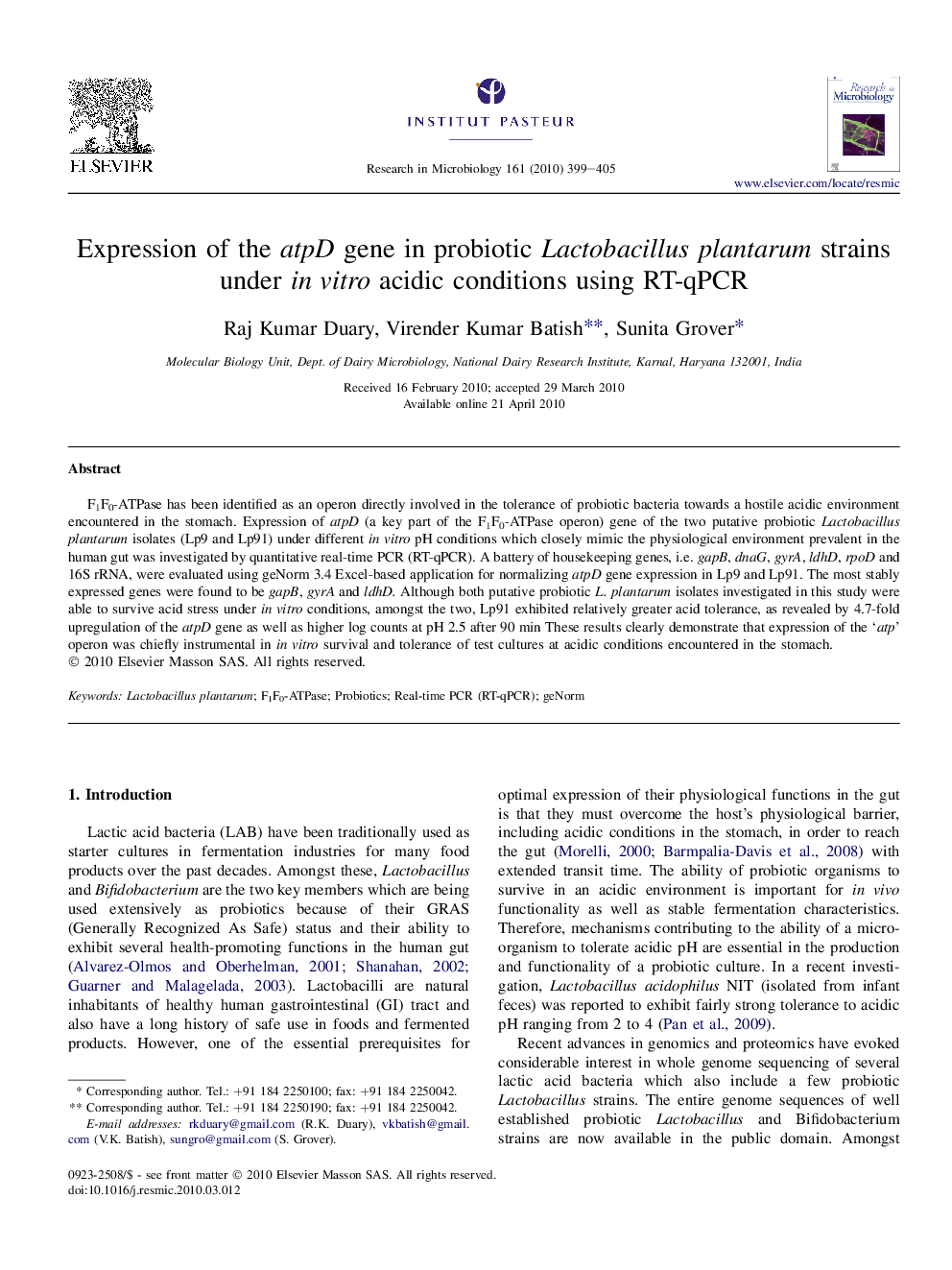| Article ID | Journal | Published Year | Pages | File Type |
|---|---|---|---|---|
| 6288158 | Research in Microbiology | 2010 | 7 Pages |
Abstract
F1F0-ATPase has been identified as an operon directly involved in the tolerance of probiotic bacteria towards a hostile acidic environment encountered in the stomach. Expression of atpD (a key part of the F1F0-ATPase operon) gene of the two putative probiotic Lactobacillus plantarum isolates (Lp9 and Lp91) under different in vitro pH conditions which closely mimic the physiological environment prevalent in the human gut was investigated by quantitative real-time PCR (RT-qPCR). A battery of housekeeping genes, i.e. gapB, dnaG, gyrA, ldhD, rpoD and 16S rRNA, were evaluated using geNorm 3.4 Excel-based application for normalizing atpD gene expression in Lp9 and Lp91. The most stably expressed genes were found to be gapB, gyrA and ldhD. Although both putative probiotic L. plantarum isolates investigated in this study were able to survive acid stress under in vitro conditions, amongst the two, Lp91 exhibited relatively greater acid tolerance, as revealed by 4.7-fold upregulation of the atpD gene as well as higher log counts at pH 2.5 after 90Â min These results clearly demonstrate that expression of the 'atp' operon was chiefly instrumental in in vitro survival and tolerance of test cultures at acidic conditions encountered in the stomach.
Related Topics
Life Sciences
Immunology and Microbiology
Applied Microbiology and Biotechnology
Authors
Raj Kumar Duary, Virender Kumar Batish, Sunita Grover,
